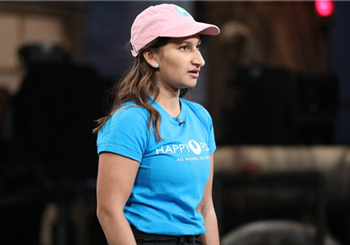“Entrepreneurship is a journey,” says Alon Eisenstein.
“And along the way, entrepreneurs and their startups face many challenges — with technology, with a lack of funding. There are many questions. Does the business plan make sense? Do we have what we need to take the next step?”
Eisenstein — an experiential learning instructor with the Impact Centre in the Faculty of Arts & Science — is helping undergraduate students navigate the entrepreneurship journey in a course offered by the centre called Exploring New Ventures.
The course provides students with an opportunity to learn about entrepreneurship through placements with Toronto-based startups. Through this hands-on experience — combined with in-class work — they see for themselves the complexities and challenges of transforming knowledge into an innovative product or service.
“It takes so much more than just a good idea,” says Eisenstein. “The majority of startups don’t turn into Uber, Airbnb or Facebook. Those success stories aren’t the rule — they’re the exceptions.
“For example, Facebook wasn't the first social media platform back in the day,” he says. “They weren't even the only social media platform for colleges or universities. There were other companies trying to do exactly the same thing. So, why were they successful?”
Siobhan Wagner is a member of Trinity College and studying biochemistry and biomedical toxicology. She’s gaining insight into what makes a successful startup through a placement with STAN A.I., a company that offers a property management tool powered by artificial intelligence.
“I have a science background and took this course to help me understand how to bridge the gap between science and business,” says Wagner. “It’s been great. I’ve been placed with a very supportive team and it’s been an eye-opening learning experience.”
While the Exploring New Ventures course focuses on startups aiming to turn technology into products, it’s available to undergraduate students from all disciplines. Over the six years the course has been running, the nearly three hundred enrolled students have come from life sciences, math, physical sciences, humanities, social sciences, commerce and computer science.
Janice Liu is a member of University College pursuing a double major in psychology and economics. Her placement is with a company called Hypercare, which provides a communications platform designed for use in hospitals.
As Liu learned, hospitals still use pagers and fax machines to communicate which results in many inefficiencies in clinical workflow. Hypercare is the Slack of healthcare — integrating secure messaging and on-call scheduling to minimize the frustrations clinicians face when they communicate via pagers.
“My Exploring New Ventures experience has been amazing,” she says. “I’m not a conventional business student, so my opportunities for exposure to business are limited. When I found out about the Impact Centre and the course, I knew it would give me practical experience.
“I learn best by being in the trenches,” she says. “So it’s the perfect platform for my career growth. And now, I’ve taken an interest in the technology sector and want to do something in that space, so I’m planning to continue working with Hypercare in 2020. There’s still a lot I can learn there.”
One of the strengths of the course is that neither Eisenstein nor the startups try to slot students into roles based strictly on their programs or discipline-based skill set — something that can be common in traditional internships.
“That approach limits the potential of a student,” says Eisenstein. “The best success stories involve students who’ve had the freedom to explore their passions and their strengths in different settings and use a skill set that’s outside their discipline.”
That was Liu’s experience.
“I collaborated with executives on drafting business proposals,” she says. “I was pulled into sales meetings that I never dreamed I would be a part of. I got firsthand experience with their sales processes. I dipped my toes into business development strategy and marketing. I even got to attend conferences and meet people from the health-tech sector.”
And because the startups are at very different points in their evolution, placements expose students to a variety of experiences and challenges.
“Depending on where a company’s at, a student might gain experience in business proposals, industrial design, prototyping, quality control, distribution or sales,” says Eisenstein.
Thanks to the variety of startups involved, students can also find themselves gaining experience they never imagined.
iMerciv is a company that came out of the Impact Centre’s entrepreneurship cultivation program. The company — whose two founders had family members affected by vision loss — is developing proximity detection devices for the blind. The devices vibrate in response to nearby objects and can be attached to a person’s clothing, thereby replacing a traditional cane.
“The students who had placements with iMerciv learned about the business, but they also had an opportunity to work with visually-impaired individuals. And they said, ‘I’ve never worked with the visually impaired before and the experience was so rewarding.’”
This article was originally published at the Faculty of Arts & Science website
An exciting entrepreneurial journey

While Eisenstein points out that his expectation isn’t that each Exploring New Ventures student will eventually build their own startup, it does happen.
Read about Leila Keshavjee’s exciting entrepreneurial journey which included a successful appearance on CBC’s Dragon’s Den and has resulted in a growing business.


